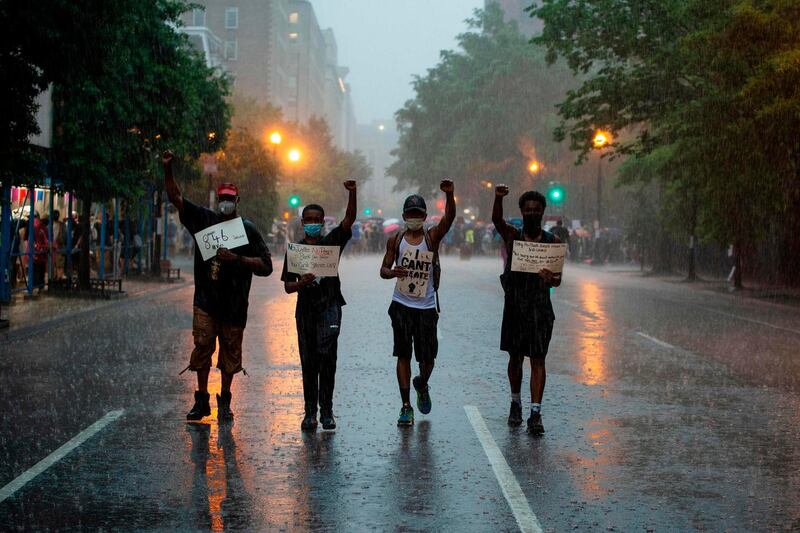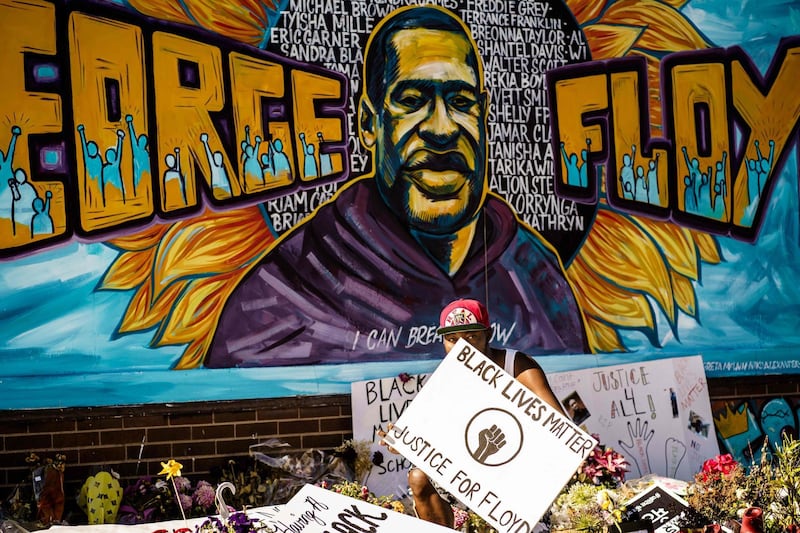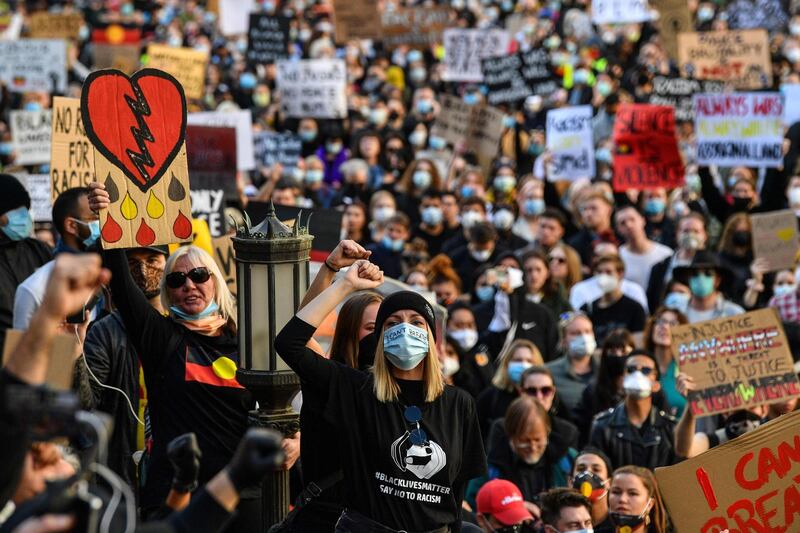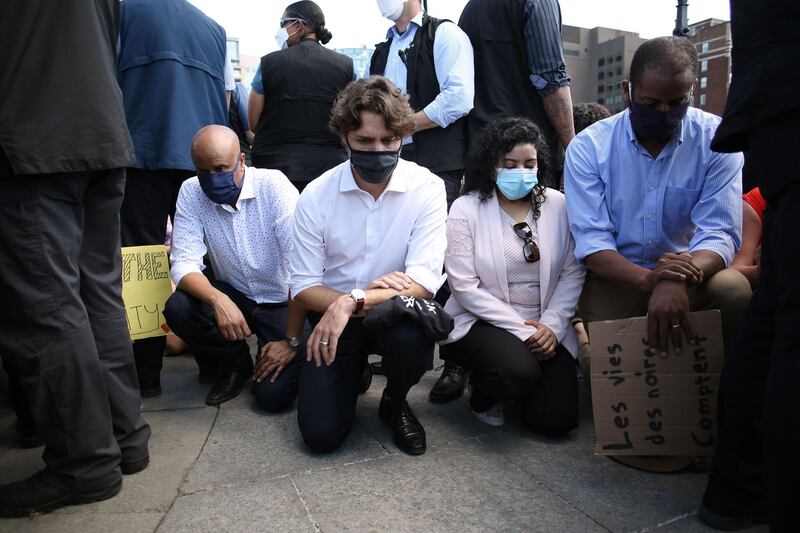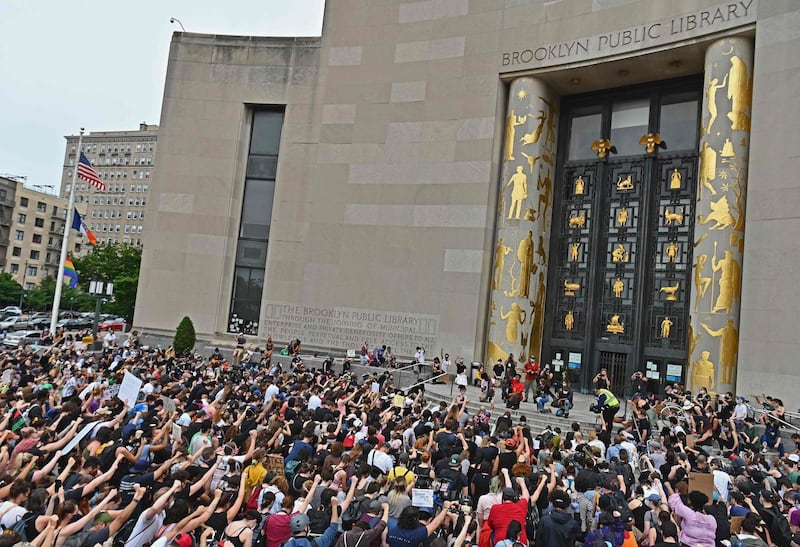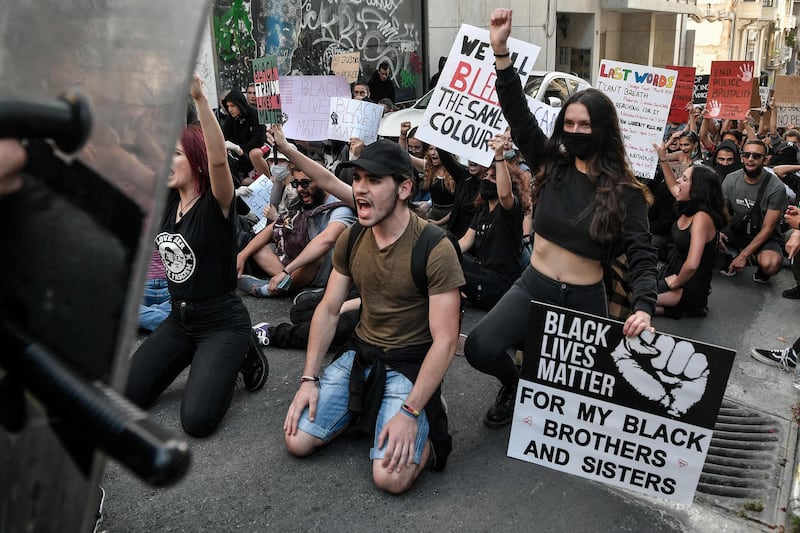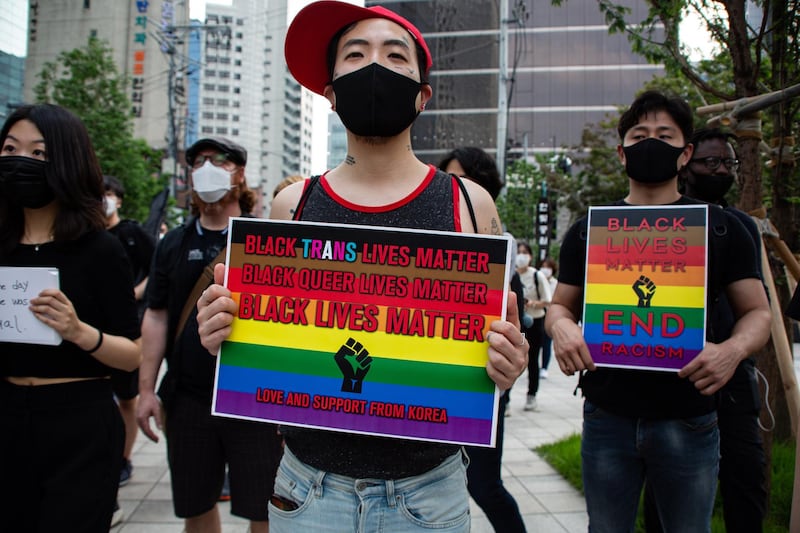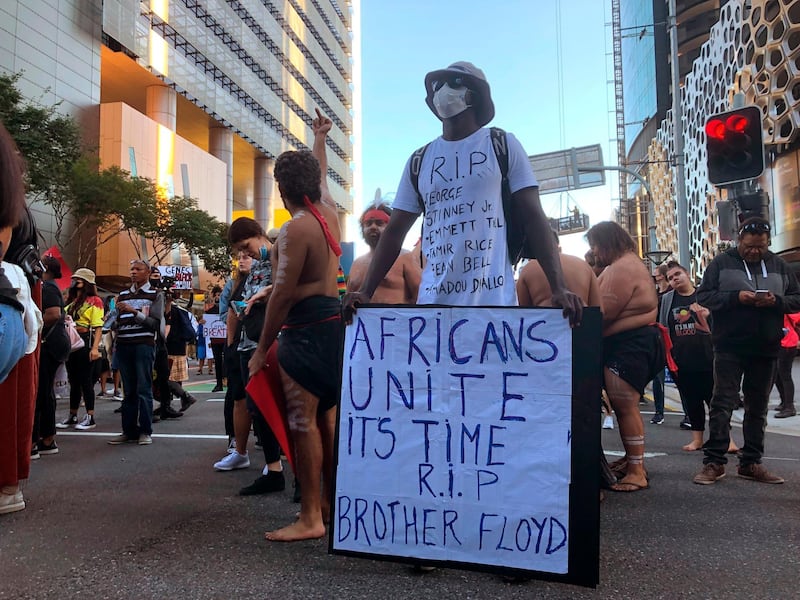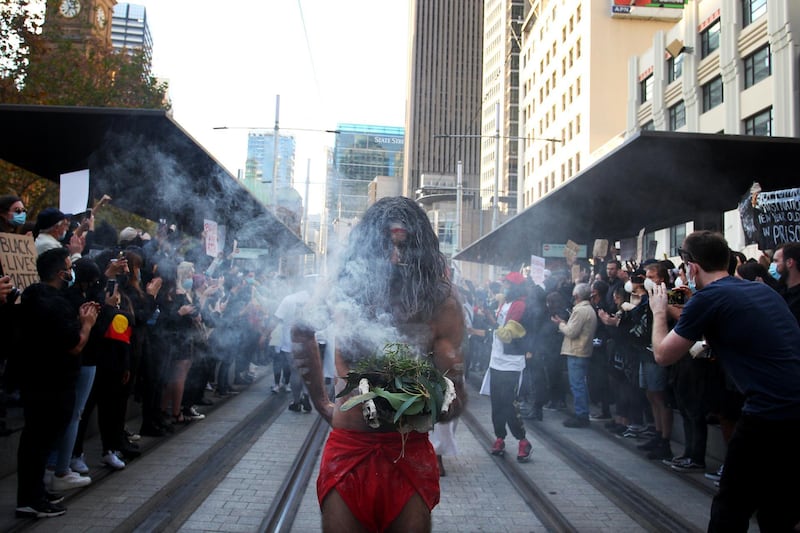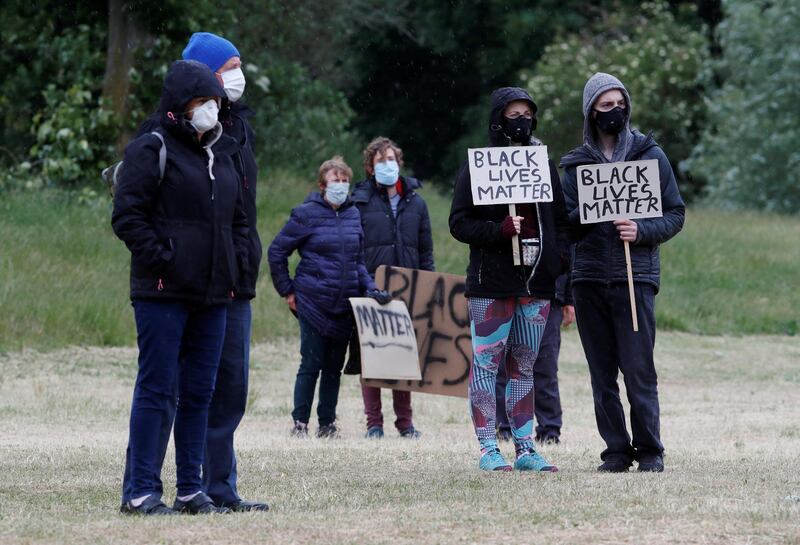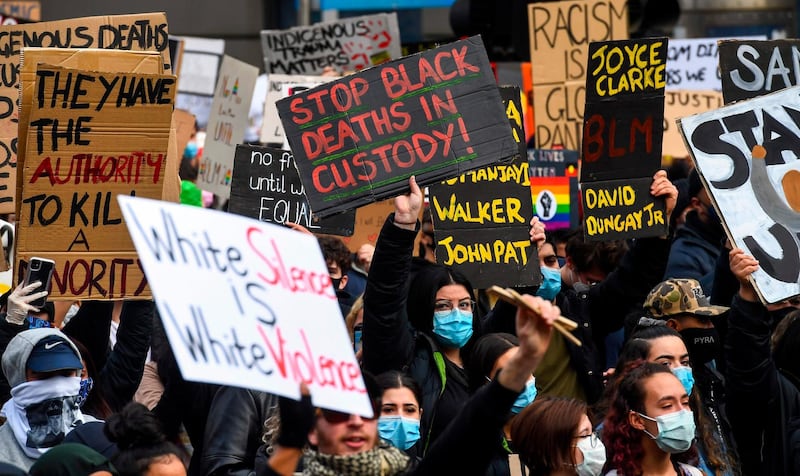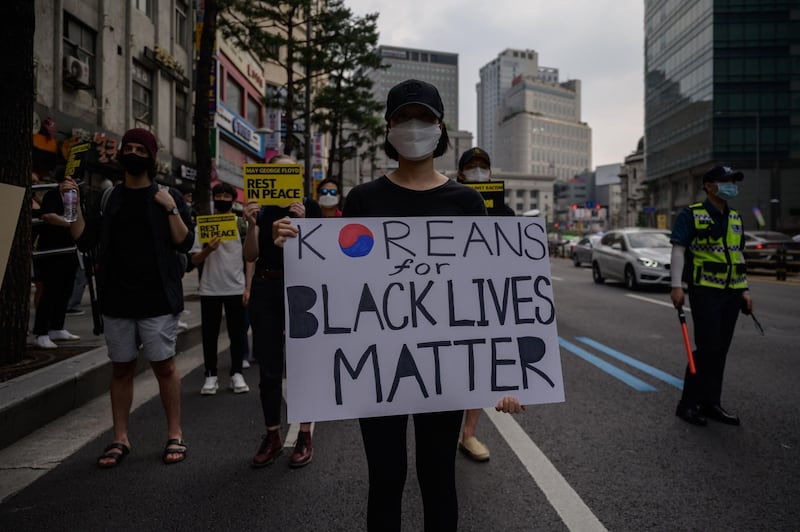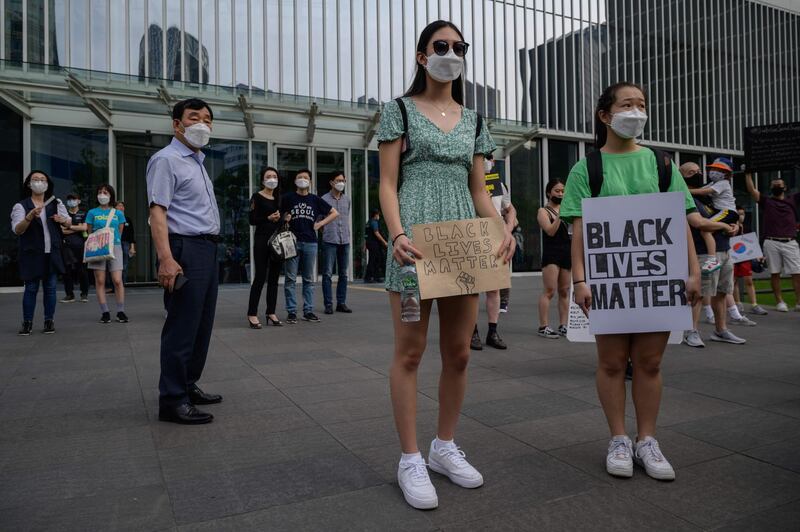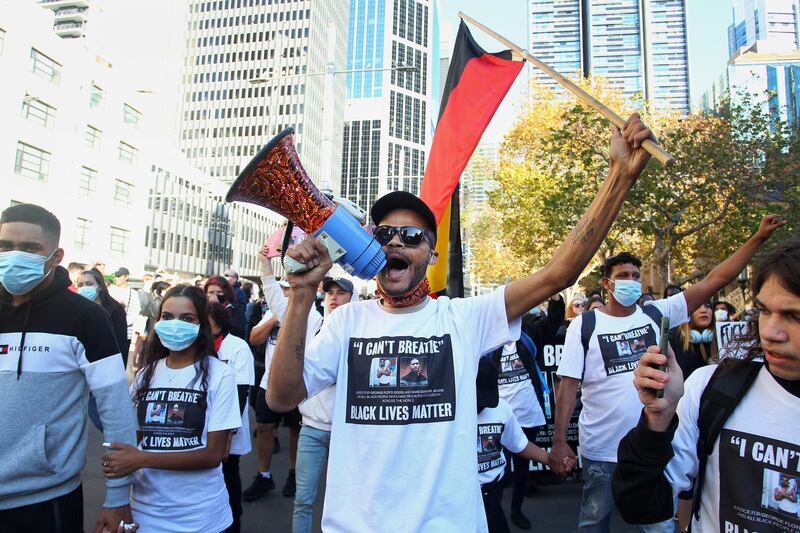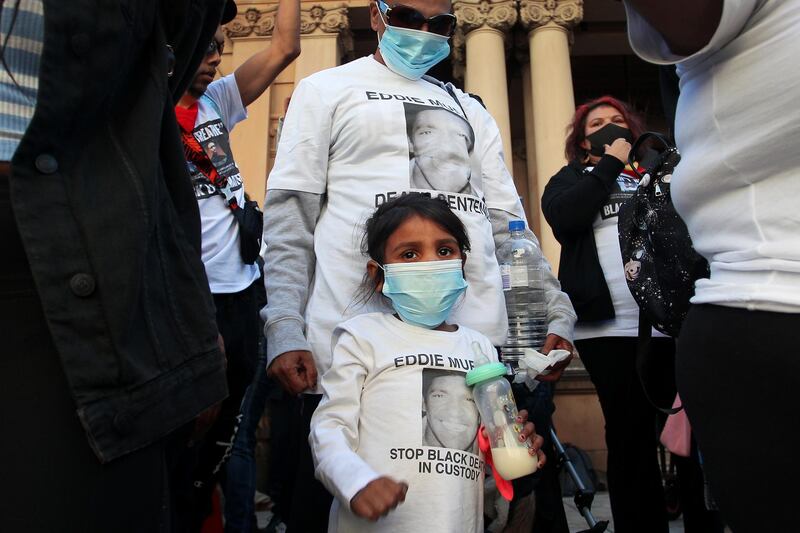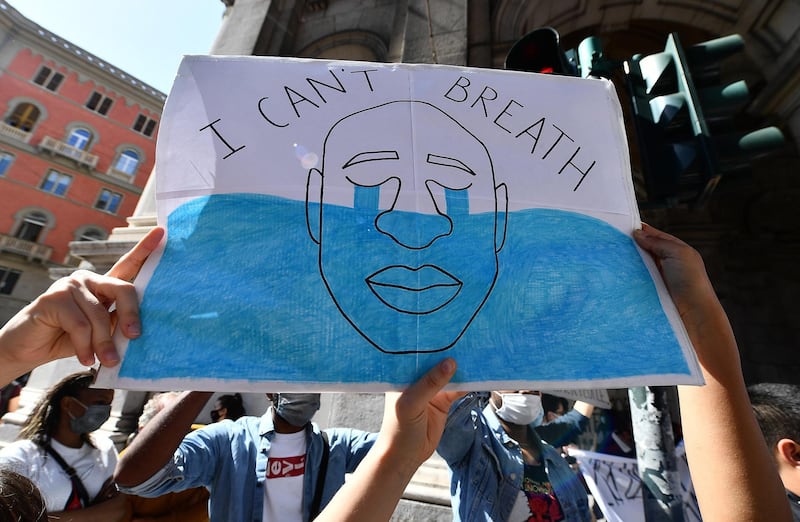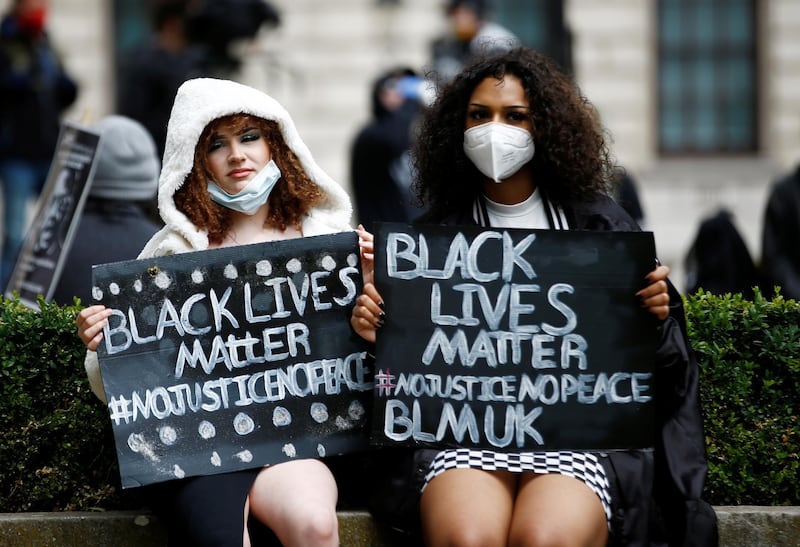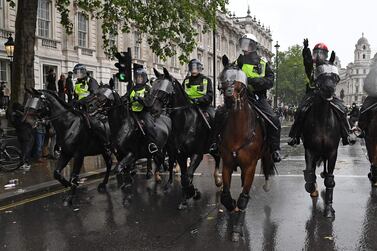Massive demonstrations took place in Washington, DC on Saturday as protesters held a ninth day of rallies in the US capital over the killing of George Floyd by police in Minneapolis.
As many as 200,000 protesters were expected in Washington on Saturday, US Army Secretary Ryan McCarthy said.
Marches were planned across the city from Capitol Hill and the Lincoln Memorial, as well as from neighbouring Virginia and Maryland into the heart of government where they all merged outside the White House.
The renamed Black Lives Matter Plaza outside the White House played host to thousands of demonstrators, who peacefully chanted, danced and called for political change and criminal justice reform.
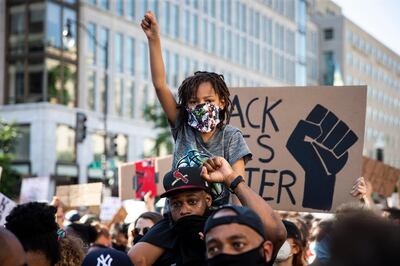
Over a huge street mural painted on Friday that read "Black Lives Matter", Jose, a young Hispanic man told The National that he was protesting against racial profiling. "I have an ethnic name and I understand what it's like to be bullied or to be made fun of just because you are the minority," he said.
Patricia, an African-American mother, said the time for change had come. “I want change," she said. "I want equality for my son."
“It’s our civil right as brown and black people to ask for that. Actually, I don’t understand why we even have to ask for it; it’s our right.”
The march arrived only two weeks after the US capital began to ease coronavirus restrictions, and a group – made up of some of the city’s healthcare workers – joined up with protesters to call for equality. The group of medics, known as White Coats for Black Lives, has attended several protests so far.
"Racism has killed far more people than coronavirus," Amy Peddington, one of the protesting nurses told The National.
WHITE coats for BLACK lives #BlackLivesMattters #GeorgeFloyd pic.twitter.com/wcqeIJAlxo
— Amuda (@amuda) June 6, 2020
The enormous crowds were as festive as they were diverse on Saturday afternoon, and there was little to no military presence after the city’s mayor, Muriel Bowser, asked the troops, with the exception of the National Guard, to leave.
Ms Bowser, who has been publicly fighting with US President Donald Trump on Twitter, took a victory lap on Saturday as she joined in with demonstrations in her city.
She took credit for having “pushed the army away from our city” and urged people to vote in November.
On #BlackLivesMatter Plaza, we said “no”
— Muriel Bowser (@MurielBowser) June 6, 2020
In November, we say “next” pic.twitter.com/CmoleZd1eT
On a sunny but oppressively hot day, many people wore masks to protect against coronavirus. Volunteers handed out water and other supplies as the area took on an atmosphere of celebration, with food trucks and vendors selling Black Lives Matter T-shirts.
Some protesters attached pictures of Floyd and other black Americans killed by police to the tall barrier surrounding the White House.
On the National Mall, fencing and uniformed guards blocked protesters from the steps of the Lincoln Memorial where civil rights leader Martin Luther King Jr famously delivered his "I have a dream" speech in 1963, pleading for an end to racism in the US.
"As African Americans we are here to bring a message of our hope, saying this vicious system will not define us," said Deniece Laurent-Mantey, 31, who was among the large crowd there.
"Martin Luther King stood here, and after so many years we are back here with a new message of hope."
The protests were sparked by videos of a police officer kneeling on Floyd's neck for almost nine minutes as he pleaded for his life – the latest case of white police being blamed for the death of an unarmed black person.
The rage since Floyd's death in Minneapolis on May 25 has exploded into the most serious civil unrest in America since King was assassinated in 1968.
Peaceful protests grew on Saturday in other US cities. Thousands rallied in locations across New York City, a massive crowd gathered before Philadelphia's Art Museum, the Chicago authorities shut down the city's Lake Shore Drive to facilitate protests and demonstrators marched in Los Angeles.
But the demonstrations in Washington were expected to be the biggest since protests began nine days ago in Minneapolis before spreading across the country and then abroad.
The US president, who has been condemned for his response to the unrest, including by former members of his own administration, did not acknowledge the mass demonstration.
According to the White House schedule, Mr Trump was inside the White House on Saturday. A new barrier was erected outside the presidential abode this week, stretching nearly 2.5 kilometres.
Okay I just walked the entire perimeter of the White House and the Ellipse, the park that abuts the executive mansion.
— Hannah Natanson (@hannah_natanson) June 6, 2020
It’s COMPLETELY fenced in now, a significant addition from yesterday. Analysis from @JakeGodin suggests this is roughly 1.7 miles of fence. pic.twitter.com/VOWZiwd7ga
Meanwhile, Democratic politicians in the US Congress were putting together a package of bills to reform policing. It includes new immunity provisions, better training and a database to record when police use force.
Reforms to policing have been a central demand for the protesters, but even if the bill passes the Democratic-majority House of Representatives, it is unclear if it would pass the Senate or be signed by the US president.
